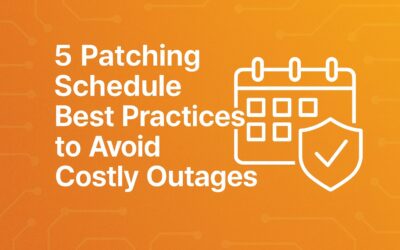In 2017, a cyberattack on one of the largest credit bureaus in the U.S., Equifax, resulted in the exposure of 146 million Americans’ sensitive information. The incident left the victims vulnerable to identity theft, fraud, and other financial crimes — risks that could’ve been easily prevented.
How? Cybersecurity awareness training.
Human Error: The Weakest Link in Cybersecurity
The Equifax incident underscores a common adage in cybersecurity circles: human beings are the weakest link. Multiple studies provide ample proof of this. The World Economic Forum’s 2022 Global Risks Report shows that a whopping 95% of cybersecurity issues can be traced to human error. Verizon’s 2022 Data Breach Investigations Report (DBIR) found that most 2022 breaches involved the “human element.”
One way to mitigate this risk is by improving human security behaviors. Here’s where cybersecurity awareness training comes in. By training and educating your employees, you can mitigate your company’s security risk, minimize the probability of attack, and potentially lower your cybersecurity insurance premiums.
Read on to discover more about the importance of cybersecurity training and how your managed security services provider can help you deliver a tailored and effective training program to your employees.
Why Humans Are the Weak Link in Cybersecurity
Why are humans the weak link in cybersecurity?
The main reason is that we often act in ways that cause or allow a security breach to happen. For example, we click links and download attachments without first scrutinizing the email for anything suspicious. In doing so, we could fall prey to phishing attacks that enable attackers to breach our company’s defenses to steal sensitive business data.
Another common mistake is using weak passwords. Easily guessable passwords allow cybercriminals to hack into and then compromise the user’s account and cause untold damage to the organization.
People are also highly susceptible to social engineering, cyberattacks in which hackers manipulate or deceive them into providing access to sensitive information or systems. Moreover, people could misdeliver emails containing sensitive information or use outdated, vulnerable software.
The bottom line is the human element can significantly increase a company’s cybersecurity risk.
Why You Need Cybersecurity Awareness Training
A cybersecurity attack due to human error, such as social engineering, phishing malware, or business email compromise, often comes with a substantial financial cost for companies. For example, in the years following its 2017 breach, Equifax paid more than $425 million in victim settlements. They also had to shell out a whopping $1.6 billion on breach investigations and cyber defenses.
Ransomware attacks, many of which happen due to human errors, are particularly costly for businesses. In 2023, the average ransom payment was $1.54 million, an almost 2X increase over 2022. Cyberattacks also cost organizations in other ways: increased customer churn, loss of potential profits, reputational damage, and higher cybersecurity insurance premiums.
Where Common Cyber Defense Measures Fall Short
To avoid attacks, security-conscious companies bolster their cyber defenses with antivirus software, firewalls, and solutions for endpoint protection, identity protection, vulnerability management, data loss prevention, etc.
Small- and -medium businesses (SMBs) usually have smaller security budgets, so they may only implement some of these controls. But in general, most companies focus on tools and technologies to improve their cybersecurity posture.
And herein lies the rub.
Undoubtedly, these aspects are crucial for your company’s cybersecurity. However, they’re not enough – because they don’t address the human element, which as we have already seen, is a key weakness in enterprise cybersecurity. To plug the security gaps created by human beings, you need to combine cybersecurity controls with cybersecurity training.
The Value of Routine Cybersecurity Awareness Training
Regular training increases users’ security knowledge. The more knowledge they have, the less likely they are to make errors and the better they will understand their role in minimizing the organization’s cybersecurity risks. Lower risk minimizes the probability — and the associated costly fallout — of a cyberattack.
Low-risk companies may also pay lower cybersecurity insurance premiums than medium- or high-risk companies. Lower premiums can lower your overall costs and positively impact your profitability.
The Key Elements of Cybersecurity Awareness Training
A comprehensive cybersecurity awareness training program educates users about the best practices and dos and don’ts around these areas:
- Cybersecurity principles, procedures, and policies
- Phishing awareness
- Malware and ransomware
- Identity theft
- Password management
- Social engineering
- Data protection and privacy
- Mobile device security
- Incident response and breach recovery
The program may be delivered via some combination of classroom or in-person sessions, computer-based training, videos, email newsletters, and simulation exercises. The most effective programs include assessments to test users’ knowledge, provide regular refresher training to ensure that this knowledge remains up-to-date and track and measure users’ awareness levels over time.
Where to Find Cybersecurity Awareness Training for Your Organization
The cyber threat landscape is constantly evolving and expanding. Threat actors are lurking around every corner, looking to exploit the human weaknesses in your organization. Fortunately, you can minimize these weaknesses with a tailored and comprehensive cybersecurity awareness training program.
The easiest way to set up the program is to ask your managed security services provider. The best providers include cybersecurity training in their managed security offerings. At GCS Technologies, training is part of Secure Cloud, our comprehensive managed security offering for small- to medium-sized businesses.
Secure Cloud combines Microsoft Cloud security services and a team of security experts to provide enterprise security to every business. Secure Cloud includes cybersecurity training, a service that empowers your business to strengthen its security posture by minimizing the human causes of cyberattacks.
What You Get from GCS Cybersecurity Training

Protect Your Business with GCS Cybersecurity Awareness Training
GCS Technologies’ Secure Cloud is a flexible managed security offering for small- to medium-sized businesses. It includes robust cybersecurity controls, access to human security experts, and cybersecurity awareness training. Together, these key elements can help you minimize your security risks and lower your cybersecurity insurance premiums. To know more, contact us.



